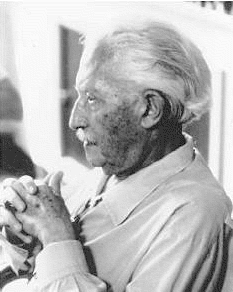 There are regrets (Why did I post that drunken selfie on FB?) and then there are regrets (Why did I study sociology when I want to be an architect?). In our twenties we tend to fear both types of regrets, but it's the latter that most affects us. We can become so paralyzed by fear of regret that we fail to act at all; we think any action might be the wrong action.
There are regrets (Why did I post that drunken selfie on FB?) and then there are regrets (Why did I study sociology when I want to be an architect?). In our twenties we tend to fear both types of regrets, but it's the latter that most affects us. We can become so paralyzed by fear of regret that we fail to act at all; we think any action might be the wrong action.
And our worries aren't unfounded. We all accumulate regrets with age, as your classmate Lisa exemplifies in her post Start From Where You Are and Believe. One-third of American adults have education regrets, one-quarter have career regrets, and 15% have romance regrets.
So, yes, regrets may be in our future, and they're worth fearing. But only if we use that fear to propel us toward a more genuine, fulfilling life doing work that is meaningful to us. And that pays the bills in the process.
Fear Regretting Inauthentic Choices
When I tell my real-world students the following, they look at me like I'm the biggest dork in the world. Get your "wow you're uncool" face ready: I make all my major life decisions by consciously considering the end of my life. And psychologist Erik Erikson.
Bear with me. Erikson - who we've talked about as the it-man of identity development theory - said that in the final stage of our lives we want to have a sense of integrity instead of feeling despair. We gain integrity from reviewing our lives and seeing that we the life choices we made were authentic to our selves and matched our core identities.
So I let Erikson and my deathbed propel me. I mean, who wouldn't? (Uh, most normal people.)
Join in on my morbidity - when you're on the cusp of a major decision think, what would my elderly (dying) self think of this choice? You'll never go wrong if you pick what's genuine to you. Assuming you've done the work to discover your true self, a process we'll be discussing in upcoming classes.
This approach truly works. Believe me; I'm well acquainted with dying Becca. (She's very, very old. And stunningly gorgeous for her age.)
Inaction is Worse Than Action
SweetlyIndecisive began a recent post with the claim that inaction is more regrettable than action. When you ask college students, though, they consistently refute this, saying they most regret what they've done. That's probably because we're stupid idiots in college. (Uh, hello running a college radio show on which I thought it was a good idea to sing along with the songs.)
It's only when we broaden out to the "average American" that inaction becomes the big regret. While adults have equal numbers of action and inaction regrets, their regrets about inaction last longer and cause more severe losses than regrettable actions.
In other words, do something. Anything. Except singing on the radio.
You'll Most Regret What You Can Change
That isn't a typo: we have more intense regrets about situations that we can still change. What can we learn from this? That it's a good idea to either immediately take the corrective action, or instead to create closure such that action is no longer a possibility. Otherwise it's going to haunt you. For a long, long while.
Interpersonal Regrets Are Most Powerful
Although we have many regrets about education and career when we're adults, regrets about interpersonal issues sting the most. As psychologists Morrison, Epstude and Roese say, "Failed marriages, turbulent romances, and lost time with family may elicit regrets that last a lifetime."
In other words, don't focus on your professional development to the detriment of your personal life. Our need to belong obliterates our need to achieve, to have status, and to have financial gain. So keep things in perspective. Or else you'll regret it. And I don't just mean the way celebs regret their atrocious selfies. I mean the real deal.
Have you racked up any big-time regrets? If so, what advice would you give others so they can avoid them?
Sources:
Morrison, M. & Roese, N. J. (2011). Regrets of the typical American: Findings from a nationally representative sample. Social Psychological and Personality Science, 2, 576-583.
Morrison, M., Epstude, & Roese, N. J. (2012). Life regrets and the need to belong. Social Psychological and Personality Science, 3, 674-681.
Tell me that the person who posted this never regretted it. (Photo credit: This Year's Love)
Erik Erikson. My hero. (Photo credit: Wikipedia)
There's nothing quite like family. There'd be no awkward photos without them. (Photo credit: marcia.furman)


